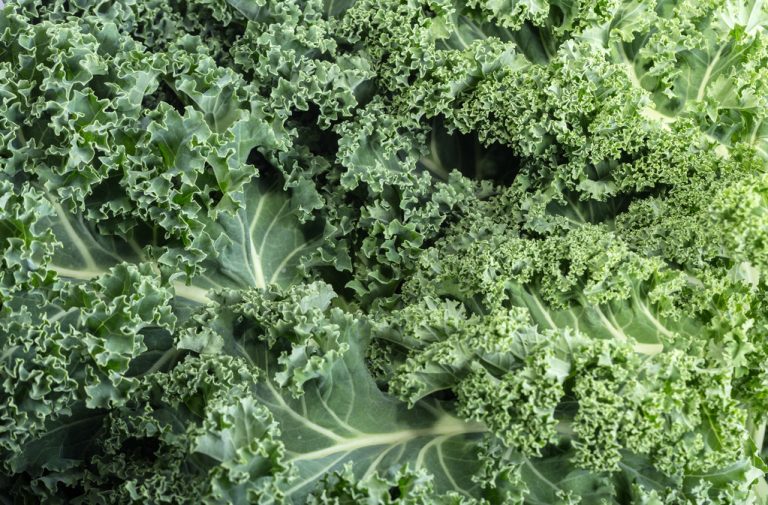Freezing kale is a good idea when there is a large supply in winter. But does the local superfood really belong in the freezer?

Why you should prefer fresh kale
When you freeze kale, its consistency and texture change: the water contained in its cells crystallizes in the freezer. Over time, larger ice crystals form that damage the cell structure of the kale. Frozen kale then loses its crispness. This may not matter so much with braised kale, but it makes frozen kale unsuitable for salads or pan-fried dishes.
In addition, your freezer consumes a lot of electricity. Now it doesn’t make a significant difference in energy consumption whether you freeze an additional pack of kale or not. However, if you generally freeze less food, you can switch to a smaller freezer for the next purchase or maybe even get by without it. If you switch to a more energy-efficient device, it usually pays for itself after one to two years.
If you are faced with the choice between fresh and frozen kale in the supermarket, it is best to choose the fresh kale. Only ever buy as many fresh vegetables as you will use. This way you avoid having to throw away leftovers. In addition, fresh kale usually tastes better than the frozen version.
How to properly freeze kale
Maybe you grow kale yourself or have large amounts of it at home for other reasons. Then it is definitely better to freeze the kale than to let it spoil. Follow these instructions when freezing fresh kale:
Wash the kale thoroughly to remove any dirt or sand residue.
Remove the kale leaves from the main stalk.
Blanch the kale leaves in heavily salted and boiling water for 2 minutes.
Quickly cool the kale in an ice water bath. This will stop the cooking process and keep the green color.
Drain the kale well and cut into bite-sized pieces.
Pack the kale in a freezer bag or mason jar and freeze it in your freezer.
It’s extremely important that you don’t freeze the kale without first blanching it. If you blanch vegetables, you kill vitamin-splitting enzymes and spoilage germs. This way, the kale will last longer in your freezer and most of the vitamins will be preserved.

